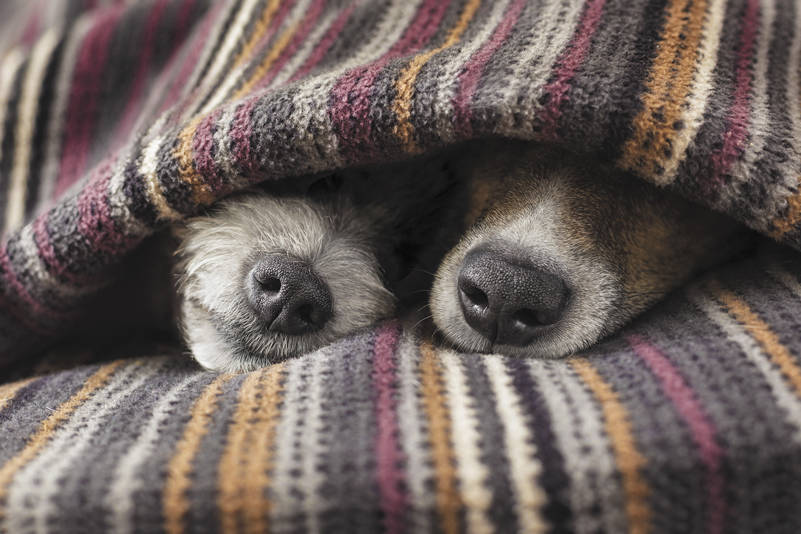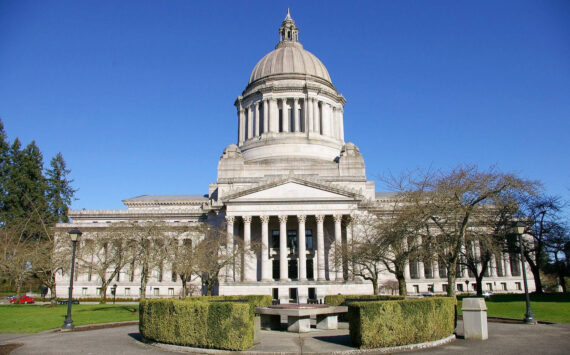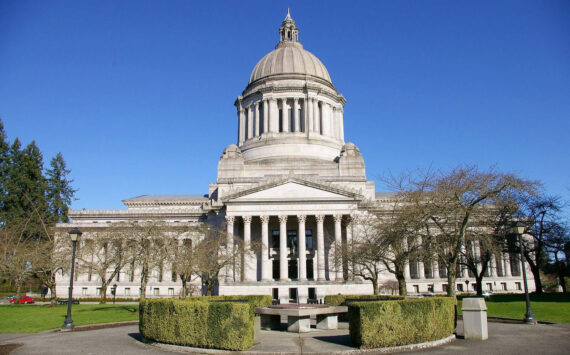By Morf Morford
Tacoma Daily Index
Anyone else feel like hibernating?
I have been convinced for many years that we should all hibernate in January.
After all, what is January in the Pacific Northwest except short, dark, dreary and endlessly soggy days, recovery from New Years and Christmas and counting the days until warmer and brighter weather?
Who else does not feel that we spend most of January just slogging through in a groggy daze hoping, or maybe even forgetting, that there could be better days ahead.
It turns out that I’m not alone.
Humans in the Northern Hemisphere have hibernated before, at least according to recent research – https://www.theguardian.com/science/2020/dec/20/early-humans-may-have-survived-the-harsh-winters-by-hibernating?
Besides sleeping, what does one do in a hibernation month?
Nothing is more traditional, and even universal, in an ancient cultural practice that crosses millennia and continents and every ethnicity – than a time of reflection, re-orienting and telling each other our stories of struggle, persistence, and yes, survival.
For millennia, agriculture was based on a simple principle; the most productive fields were those that were allowed to lie fallow – unused – every few years.
The academic world had a similar guiding principle; professors, every seven years or so, were allowed time off to write, research and explore areas of specialized, and perhaps not immediately recognized as productive avenues, of study, exploration and experience. This tended to be the time of the most serendipitous discoveries and inventions.
Many companies offer sabbaticals – extended paid time off and, in return, get committed and dedicated employees – not to mention workers that come back restored, refreshed and more motivated. https://www.sabbatic.com/companies-offer-sabbaticals/
If food production, mental health, creativity and even worker productivity could be improved by having a near universal season of retreat and restoration, doesn’t it seem that it might be a good idea for more and more of us?
What could be more necessary and restorative these days than a time, a season, of story-telling?
If you travel the world as an American, one of the things that is most striking is that almost everyone across the globe knows American stories; they know our movies, our songs and even every TV series.
I know I’m biased, but I think the evidence shows that we Americans are the best storytellers.
We have two unfair advantages; the first is that we have storytellers and creators from every culture from around the world. We don’t have much of our own tradition to draw from so we pick and choose and meld form every tradition from Nordic to Aztec to Middle-Eastern.
From Santa Claus to St. Patrick, we mix and meld and create or expand and make our own holidays, traditions and celebrations from Kwanza to Halloween.
The second advantage we have is one that most of us barely know or recognize, but it is what sets us apart from every other culture on the planet.
We have absorbed, again, mostly without realizing it, the structure and depth of a tradition and practice deeply embedded in our land, our seasons and our identity even older than our national identity.
The various native people who filled what we now know as North and South America told and re-told stories of creation, struggle and persistence.
For most of the native cultures of North America, there was minimal use of, or even trust in a written tradition, so an enduring oral tradition emerged.
This culturally defining tradition, out of necessity, had to be memorable (literally) and transferred, like a living testimony to each new generation.
In North America, the deadest time of winter was the time for these stories. https://www.smithsonianmag.com/blogs/national-museum-american-indian/2017/12/20/american-indian-winter-solstice/?
When work was done, food was stored, the clan was gathered, and yes, the weather outside was frightful, the fire was kept and everyone collected around a common blaze and a common identity and purpose.
And each year, this unofficial vow, this contract between the past and the future was repeated and renewed. And sometimes re-enacted.
I’m sure no one back then thought of it that way, and probably few of us do today.
But I think we all know, especially after a year like 2020, that, not only are we more polarized and more divided than ever before, but we have each retreated into our own tribes, around our own figurative fires, our flickering screens, and they, the voices and electrons of manipulators and advertisers have re-created us in their image.
We, like too many of them, echo our talking points and speak louder instead of listening. We wallow in fear and suspicion, assigning blame and finding ourselves more and more alienated from each other – and finally from ourselves.
And too many of us have forgotten that our story, our identity, even the name of our nation is “united.”
Our story, like every story, is a shared story.
Every story, from Hollywood blockbuster, to a newspaper cartoon, to a crazy day at work, has its struggles and disappointments, its betrayals and its restorations, its dark and frigid winters and its glorious springs.
Spring is a time of renewal, but it follows, at least in nature, a time of dormancy, a time of silence, a time of putting aside work and schedules and obligations.
This winter, like the seasons that preceded it, is like no other.
If we ever needed a season of recollection, of literally re-membering who we are, it is this winter.
Yes, we have difficult and dangerous times ahead. Like the past several months, we have hazards and difficulties few, if any of us, could have ever imagined.
Most of us will make it through. There will be other difficulties lying ahead, but for now we have plenty to deal with on our immediate horizon.
Future challenges will require our best and highest strengths – and maybe even a few lessons learned from the recent past.
We need each other, and have made it through, perhaps, the worst of it, and we, like survivors of a cataclysm or of a lingering war, will have stories to tell.
I nominate January as the month set aside for storytelling and remembering, a time for regrouping and consolidating, a time of healing and preparation, a time to set aside as many obligations as possible and gathering our strength and resources for taking on the new opportunities of spring and summer.
We need a season of gathering around a common fire, mostly in silence and listening to, and re-tellling the stories that remind us who we are, where we’ve been and where we are going.





